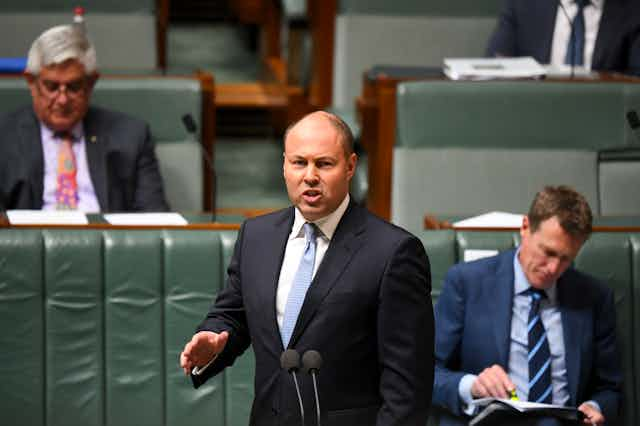This week’s update shows an improvement on the numbers in the budget that was delivered only 10 weeks ago. The prospects for growth and employment have been revised upwards. While the forecast for the deficit remains massive, at nearly $200 billion, it has been revised down.
Read more: So far so good: MYEFO budget update shows recovery gathering pace
But even as we return to some sort of normality, it will be many years before the economy resembles its pre-COVID self. And the Parliamentary Budget Office predicts the federal budget won’t leave its deficit behind in this decade.
Treasurer Josh Frydenberg joins the podcast to discuss Thursday’s budget update and the economy’s future.
Frydenberg acknowledges the road back will be tough, for the economy and the budget.
Given the “huge economic shock” of COVID, the “unprecedented spending” will leave us in the red for a long time. “There will be a very challenging fiscal environment for years out of this crisis.”
The economic future looks vastly better than in the hairy initial days of the COVID crisis.
“Very early on it was uncertain, and many of us feared the worst.”
“Treasury told me early on in the pandemic that the unemployment rate could reach 10%, and, but for Jobkeeper, reach 15%. That’s a very different world to the one that you and I face today.”
“Programmes like JobKeeper, the cash flow boost, the JobSeeker Coronavirus Supplement, the $750 payments, now $250 payments to pensioners and to carers and others on income support have very much helped pull Australia through this challenging time.
"Australians go into Christmas with real cause for optimism and hope.”
Additional audio
A List of Ways to Die, Lee Rosevere, from Free Music Archive.







